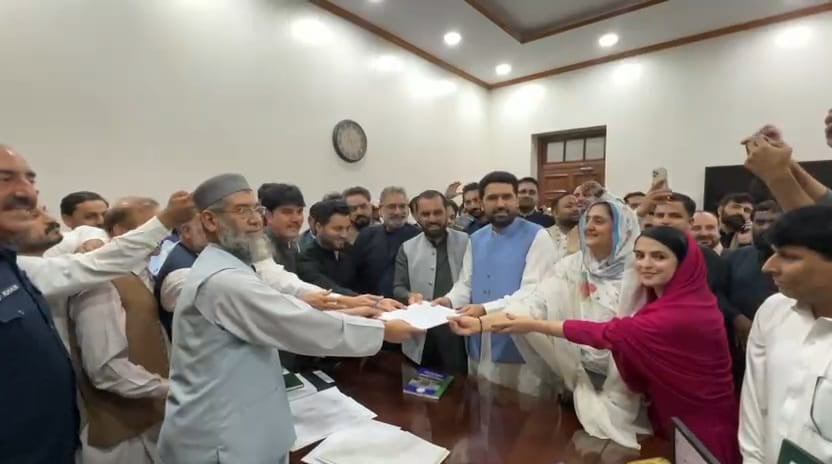Four Candidates Approved for Chief Minister’s Race
Political activity in Pakistan’s northwestern province of Khyber Pakhtunkhwa (KP) has gained momentum as the provincial assembly moves toward electing a new chief minister. According to official sources, nomination papers of four candidates have been approved by the Election Commission of the provincial assembly.
Those cleared to contest include:
-
Sohail Afridi from Pakistan Tehreek-e-Insaf (PTI)
-
Maulana Lutf ur Rehman representing Jamiat Ulema-e-Islam (Fazl) [JUI-F]
-
Arbab Zarak from the Pakistan Peoples Party (PPP)
-
Sardar Shah Jehan from the Pakistan Muslim League-Nawaz (PML-N)
The election, expected to be held in the coming days, follows weeks of political maneuvering after the outgoing chief minister tendered his resignation.
ANP Boycotts the Election Process
While major political parties have nominated candidates, the Awami National Party (ANP) has announced that it will stay away from the process altogether.
In a statement, ANP spokesperson Engineer Ihsanullah said the party would neither support any candidate from the ruling PTI nor participate in what it termed as “horse-trading politics.”
The ANP wants no part in backdoor deals or political bargaining, Ihsanullah said, emphasizing that his party seeks a transparent and principled political process.
This decision reflects the party’s longstanding criticism of political instability and floor-crossing, which have become frequent features of Pakistan’s provincial politics.
Resignation of Chief Minister Sparks Constitutional Dispute
The situation has grown more complicated due to uncertainty surrounding the resignation of the outgoing chief minister, Ali Amin Gandapur, whose departure and Sohail Afridi’s nomination have sparked intense political debate. Opposition parties argue that the governor of Khyber Pakhtunkhwa, Ali Amin Gandapur, has yet to officially approve the resignation, creating a constitutional dilemma.
Opposition leaders insist that until the resignation is formally accepted, any election for a new chief minister would lack legal clarity. They claim that proceeding without constitutional compliance could render the new government’s legitimacy questionable.
The election process should only begin after the formal acceptance of the resignation, said one opposition lawmaker, adding that any premature move may invite legal challenges.
According to Pakistan’s Constitution, a chief minister continues to hold office until a successor is lawfully elected and the resignation is accepted by the provincial governor. This clause has now become central to the ongoing debate.
Political Stakes and Broader Implications
Khyber Pakhtunkhwa, a strategically significant province bordering Afghanistan, has been a stronghold of PTI for over a decade. However, internal divisions, defections, and growing opposition unity have challenged its dominance.
Analysts note that the outcome of this election could shape the future of PTI’s political influence in the province, particularly after the party faced setbacks in recent by-elections. The opposition alliance, comprising JUI-F, PPP, and PML-N, sees this as an opportunity to reclaim political ground.
At the same time, the public mood remains tense, as the province grapples with issues such as unemployment, militancy in tribal districts, and strained relations between the provincial and federal governments.
What Lies Ahead
The Election Commission of the provincial assembly is expected to announce the schedule for voting shortly. If no consensus candidate emerges, the election could result in a hung assembly, forcing parties into alliances or negotiations.
Political observers say the coming days will reveal whether the province can navigate this political impasse through constitutional means or if further confrontation lies ahead.
As Pakistan’s broader political landscape remains volatile, the contest for Khyber Pakhtunkhwa’s top post is being watched closely — not only for its local significance but also for its impact on the national balance of power.















